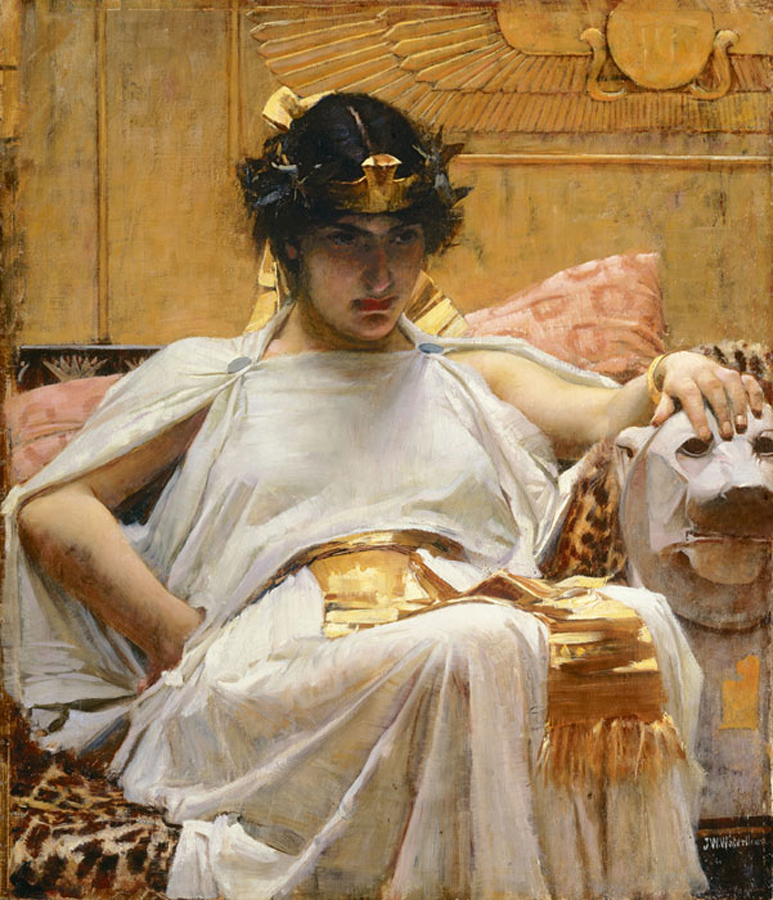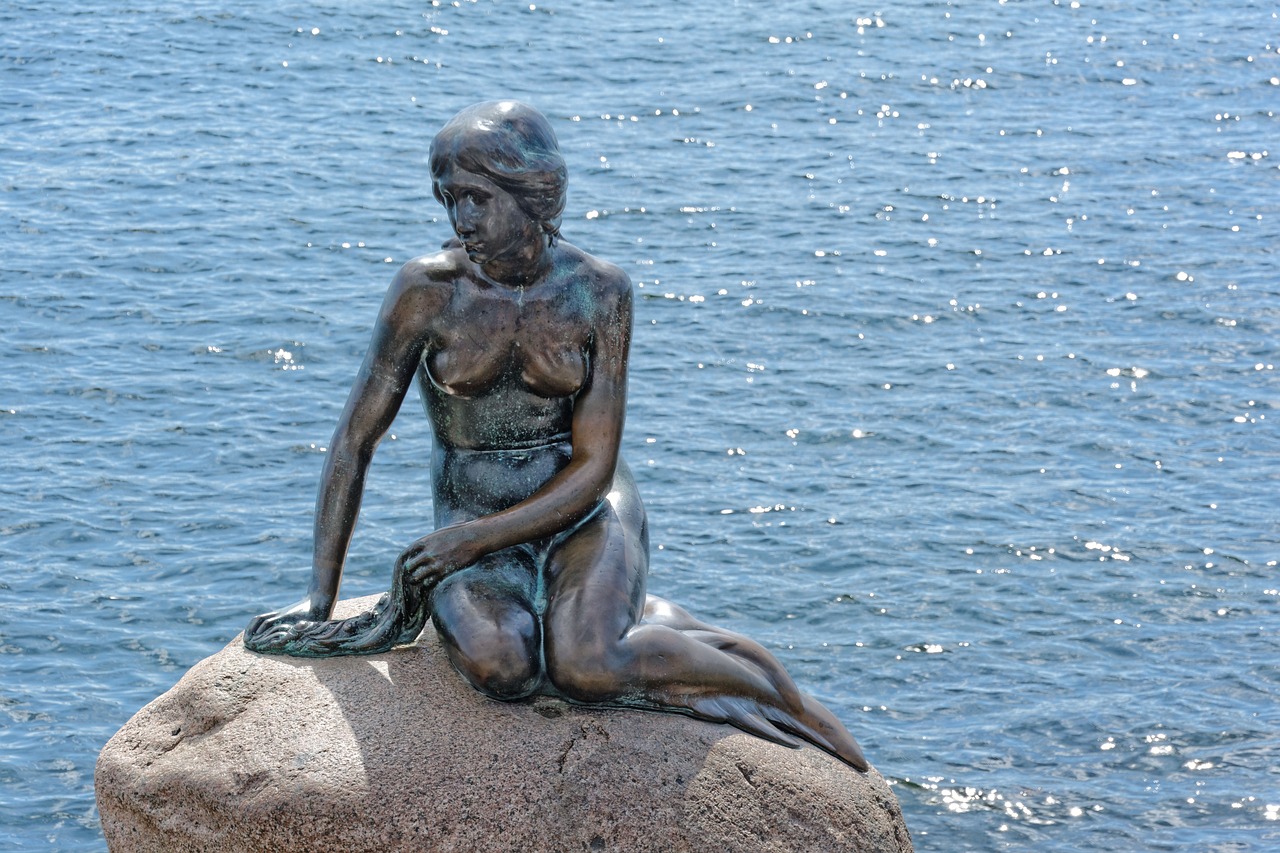Translation from the Russian by Danielle Jones (with Natalya Russkikh)
—
Yes, Gentlemen of the Court, I killed him!
And in vain did the forensic report leave me a loophole,—I will not take advantage of it.
I killed him in sound mind and clear memory, killed him conscientiously, with conviction, cold-heartedly, without a shred of remorse, fear or doubt. If it was in your power to raise him from the dead—I would repeat my crime again.
He followed me everywhere all the time. He took on a thousand human disguises and was not even ashamed—the brazen lout!—to dress like a woman. He pretended to be my relative, good friend, coworker and close acquaintance. He feigned all ages, except a child (this didn’t succeed for him and only came out comically). He overflowed my life with himself and poisoned it.
The most terrible part was that I foresaw all of his words, gestures and activities.
When we’d meet, he’d always fling out his arms and exclaim in a sing-song voice: “Ahhh! Whoo dooo I see? How many yeaars…Well? How’s your health?
And then he’d immediately answer for himself, though I hadn’t asked about anything. “My deepest thanks. Not bad. Little by little. And did you read today’s issue…?”
If, during this, he noticed that I had a gumboil or sty, then he would never miss an opportunity to chortle: “What do you have, old boy, that is disfiguring you so? Not too gooooooood!”
He already knew, the scoundrel, that I was suffering not so much from the gumboil as from the fifty idiots who’d already asked me this same meaningless question. He thirsted for my spiritual agony, the torturer!
He visited me exactly at those hours when I was up to my neck in pressing work. He’d take a seat and say: “Ahhh! It seems I may be bothering you?” Then he’d sit and pack me for two hours with his boring, tedious blather about himself and his children. He could see how I frantically pulled at my hair and bit my lips till they bled, and he relished the sight of my humiliating torment.
Having poisoned my working concentration for the whole month ahead, he’d stand, yawn and declare: “You always make me stay and chat. But I have things to do.”
On the train, he’d strike up a conversation with me with the one and same question: “Allow me to ask, are you planning to travel far?” And then, “Are you on business or pleasure? Where do you serve? Are you married? Is it a legal marriage? Or, you know?”
Oh, how well I learned all of his habits. Closing my eyes, I can see him as if he was alive. How he’d slap me on the shoulder, on the back and on the knee; how he’d make broad gestures right in front of my nose that would make me shudder and shiver; how he’d grab me by the buttons of my jacket, breathe in my face, spray spittle on me. How he’d frequently bump his leg under the table so that the glass in the lamp would rattle. How he’d drum his fingers on the back of my chair during a long pause in one of his tirades and draw out an evocative, “Welllll,” and again drum his fingers and again draw out: “Welllll,”; how he would rap his knuckles on the table when he discarded spades and croak, “And what is this? And this? And this?…” How, into the heat of a Russian dispute, he’d bring his favorite argument: “Ah, old man, you’re driveling nonsense.”
“Why is it nonsense?” I’d ask timidly.
“Because it’s rubbish!”
How I wronged this man, I don’t know. But he vowed to ruin my existence and succeeded. Thanks to him, I now feel a deep revulsion toward the sea, moon, air, poetry, painting and music.
“Tolstoy,” he’d cry out loud, in writing and in print, “he gave his wealth away to his wife and for himself…. And with Turgenev, well, he….was a bootmaker…. The great writer of the Russian land. Hurrah!”
“Pushkin? Oh, now he created language. Remember his line: ‘The Ukrainian night was quiet, the sky transparent’[1]….and his little wifey, you know, was one of those…. And in the Third Division[2], you know, what they did with him? And remember….shhhh…there are no ladies here, remember how these rhymes go:
floating along in a boat,
under the boat, water…
“Dostoyevsky? Did you read how one night he came to Turgenev’s to repent…. Gogol, you know, what kind of a sickness he had?”
I’d go to a painting exhibition and stop in front of a quiet evening landscape. But he followed me, the rogue, on my heels. He was already peering over my shoulder and saying with aplomb, “Very sweetly painted…the distance…the air…the moon seems to be alive…. Remember, Nina, the Tipyaevs’ addendum to the Niva?[3] There seems to be something similar…”
I sit at the opera listening to Carmen. But he’s already right there. He took a place behind me, put his feet on the lower rung of my chair and sings along with the charming duet of the last act—and I, with loathing, feel every movement of his body. I also hear during the interlude, how he speaks intentionally loudly, especially for me: “Zadodadov has marvelous records. A real Shalyapin[4]. Simply can’t tell the difference.”
Yes! It was him, no one but him, who invented the barrel organ, gramophone, bioscope, photophone, biographer, record player, auxetophone, portable phonograph, music box, mechanical piano, automobile, paper collar, oleograph and newspaper.
From him, there’s no salvation! Sometimes, I would run away at night to a soundless ocean shore, to a cliff, and lay there in solitude. But he, like a shadow, followed after me, snuck up behind me and spoke suddenly with confidence and self-satisfaction: “What a wondrous night, Katenka, isn’t it? And the clouds? Just like in a picture. Although if an artist was to try to paint them like that—no one would believe him for anything.”
He killed the best minutes of my life—moments of love, the precious, sweet, unforgettable nights of my youth. However many times, I walked along with a silent, adorable, poetic creature on my arm along an alley sprinkled with moonlight, he would take on an unexpected female figure who laid her head on my shoulder and said with the voice of a theatrical ingénue: “Tell me, do you love nature? As for me, I madly adore nature.” Or: “Tell me, do you love to dream under the moon?”
He took on many forms and figures, my tormentor, but always stayed the one and the same. He took the likeness of a professor, doctor, engineer, female doctor, lawyer, female student, writer, wife of an excise tax officer, landowner, official, passenger, visitor, guest, stranger, audience member, reader, and dacha neighbor. In my early youth, I had the foolishness to believe that they were all different people. But he was one. Bitter experience revealed to me, finally, his name.
It is the Russian intellectual.
If he didn’t torture me personally, then he left his traces everywhere, his business cards. On the peaks of Beshtau and Mashuk[5], I found where he left orange peels, a sardine tin and candy wrappers. On the stones of Alupka[6], at the top of Ivan’s bell tower[7], on the granite of Imatra[8], on the walls of Bakhchysarai[9], in Lermontov’s grotto, I saw the scribbles he wrote:
“Pusya and Kuziki, February 27, 1903.”
“Ivanov[10].”
“A.M. Plokhohvostov[11] of Sarapul[12].”
“Ivanov.”
“Pechorina.”
“Ivanov.”
“M.D….P.A.R…Talochka and Akhmed”
“Ivanov.”
“Trofim Zhivopudov[13]. City of Samara[14].”
“Ivanov.”
“Adele Soloveitchik from Minsk[15].”
“Ivanov.”
“From this elevated position, the sea view was enjoyed by S. Nicodim Ivanovich Bezuprechnyi).”
“Ivanov.”
I read his poems and notes in all the guest books: in Pushkin’s home, in Lermontov’s Saklya[16], and in ancient monasteries. “Here was Chiku-novy from Penza[17]. We drank kvass and ate sturgeon. We wish the same for you.” “Visited the native hearth and home of the great Russian poet. Teacher of handwriting at the Voronezh Men’s School of Pistoles.”
Praise to you, Oh, Peter the Great
In the regal clothes of pines!
Prosin, the retired captain of the quarters
Walked today upon your powerful figure.[18]
I only needed to open a favorite Russian book to immediately stumble upon him: “This book was read by Pafnutenko.” “The author is a fool.” “Mr. Author has not read Karl Marx.” Or suddenly a long and tasteless—like a sponge—polemic written in pencil in the margin. And, of course, it was none other than him bending every corner of every book, tearing out pages, and using the book to extinguish waxy candles.
Gentlemen of the Court! It is difficult for me to speak further…This person desecrated, ridiculed and vulgarized all that was to me valuable, gentle and touching. I fought for a long time with myself. The years went by. My nerves frayed. I saw it was too cramped in the world for both of us. One would have to go.
Already, long ago, I had a prescience that some kind of trifle, some meaningless incident, would force me into action. That’s exactly what happened.
You know the details. The train was so crowded that passengers sat on one another’s heads. And he with his wife and son—a high school preparatory student—took up two benches with their pile of belongings. This time he was dressed in the uniform of the Minister of Public Education. I walked up and asked, “Is there an empty spot here?”
He answered like a bulldog on a bone, not looking up at me: “No. One other gentleman is sitting here. Here are his things. He’ll soon come.”
The train started moving. I purposefully stood nearby. We travelled about ten versts.
No gentleman came. I stood there on purpose, without speaking and stared at the pedagogue. I thought that his conscience must not have died.
In vain. We travelled another fifteen versts or so. He took out his basket of food and began to eat. Then they drank tea. A family scandal arose because of the sugar.
“Petya, why did you sneak a lump of sugar?”
“Word of honor, by God, Papa, I didn’t take one. Here you go, I swear by God.”
“Don’t take the Lord’s name in vain and don’t lie. I counted them on purpose this morning. There were eighteen pieces, and now there are seventeen.”
“I swear by God!”
“Don’t take the Lord’s name in vain. It’s shameful to lie. I will forgive you everything, but lies I will never forgive. Only cowards lie. The one who lies is the one who could murder and steal and betray his sovereign and fatherland….”
And on and on… These speeches I’d already heard from him in my miserable youth when he was first my governess, and then my classroom teacher, and later when he wrote editorials in a moderate journal.
I interrupted: “Look, you berate your son for lying, and you yourself in his presence lied that this place was taken by some gentleman. Where is this gentleman? Show him to me.”
The pedagogue turned purpled and his eyes bulged. “I’ll ask you to not badger unknown passengers when they have not included you in their conversation. What is this outrage when everyone can be so badgered? Mr. Conductor, I am reporting to you. Look, he keeps on rudely infringing on strangers. I ask you to take measures. Otherwise, I will report to the police station and lodge a grievance in the complaint book.”
The conductor chided me paternally and left. But, for a long time, the pedagogue wouldn’t calm down…. “Since no one is disturbing you, don’t disturb them. And by your hat and collar, it seems you’re an intellectual. If a peasant or mechanic had allowed himself to…. but an intellectual!”
In-tel-lect-ual! The hangman called me an executioner! It was over… He had pronounced his own sentence.
I pulled from the pocket of my coat a revolver, cocked the trigger, aimed it at the bridge of the pedagogue’s nose and said calmly, “Pray.”
Paling, he screamed, “Guaaaaard!”
That word was his last word. I pulled the trigger.
I’ve finished, Gentlemen of the Court. I repeat: no repentance, no pity is in my soul. But one terrible thought eats at me and will gnaw me until the end of my days—one way or the other, I will take it with me to prison or to the crazy home: He has left a son! What if he inherits completely his father’s nature?
[1] “Poltava: Second Song”
[2] The Third Division of the Tsar’s Chancellery was responsible for political crimes, censorship and religious sects.
[3] Niva was a literary magazine of the time.
[4] Feodor Ivanovich Shalyapin(1873-1938) was a renown Russian bass singer who sang in operas in the Bolshoi and Mariinsky theatres.
[5] Beshtau is a five-domed mountain and Mashuk another peak both near the city of Pyatigorsk in the Northern Caucasus.
[6] A resort city in Crimea in southern Ukraine. It is located on the Black Sea and ringed by the Crimean Mountains.
[7] Bell tower of Ivan the Great is part of the Church of Saint John Climacus located in the Kremlin in Moscow.
[8] A town in eastern Finland near the Finnish–Russian border.
[9] A city in central Crimea in southern Ukraine.
[10] A common surname in Russia.
[11] This surname literally translates as “bad tails”.
[12] A river port city on the Kama River in the Udmurt Republic.
[13] This surname literally translates as “live pounds”
[14] A city located in the southeastern part of European Russia on the Volga River.
[15] The capital and largest city of Belarus.
[16] A type of stone monument erected by inhabitants of the Caucasus.
[17] City on the Sura River southeast of Moscow.
[18] Verses made up by the narrator.
—
Да, господа судьи, я убил его!
Но напрасно медицинская экспертиза оставила мне лазейку, — я ею не воспользуюсь.
Я убил его в здравом уме и твёрдой памяти, убил сознательно, убеждённо, холодно, без малейшего раскаяния, страха или колебания. Будь в вашей власти воскресить покойного — я бы снова повторил моё преступление.
Он преследовал меня всегда и повсюду. Он принимал тысячи человеческих личин и даже не брезговал — бесстыдник! — переодеваться женщиной. Он притворялся моим родственником, добрым другом, сослуживцем и хорошим знакомым. Он гримировался во все возрасты, кроме детского (это ему не удавалось и выходило только смешно). Он переполнил собою мою жизнь и отравил её.
Всего ужаснее было то, что я заранее предвидел все его слова, жесты и поступки.
Встречаясь со мною, он всегда растопыривал руки и восклицал нараспев:
— А-а! Ко-го я вижу! Сколько ле-ет… Ну? Как здоровье?
И тотчас же отвечал сам себе, хотя я его ни о чём не спрашивал:
— Благодарю вас. Ничего себе. Понемножку. А читали в сегодняшнем номере?…
Если он при этом замечал у меня флюс или ячмень, то уж ни за что не пропустит случая заржать:
— Что это вас, батенька, так перекосило? Нехоро-шо-о-о!
Он наперёд знал, негодяй, что мне больно вовсе не от флюса, а от того, что до него ещё пятьдесят идиотов предлагали мне тот же самый бессмысленный вопрос. Он жаждал моих душевных терзаний, палач!
Он приходил ко мне именно в те часы, когда я бывал занят по горло спешной работой. Он садился и говорил:
— А-а! Я тебе, кажется, помешал?
И сидел у меня битых два часа со скучной, нудной болтовней о себе и своих детях. Он видел, как я судорожно хватаю себя за волосы и до крови кусаю губы, и наслаждался видом моих унизительных мучений.
Отравив моё рабочее настроение на целый месяц вперёд, он вставал, зевая, и произносил:
— Всегда с тобой заболтаешься. А меня дела ждут.
На железной дороге он всегда заводил со мною разговор с одного и того же вопроса:
— А позвольте узнать, далеко ли изволите ехать? И затем:
— По делам или так?
— А где изволите служить?
— Женаты?
— Законным? Или так?
О, я хорошо изучил все его повадки. Закрыв глаза, я вижу его, как живого. Вот он хлопает меня по плечу, по спине и по колену, делает широкие жесты перед самым моим носом, от чего я вздрагиваю и морщусь, держит меня за пуговицу сюртука, дышит мне в лицо, брызгается. Вот он часто дрожит ногой под столом, от чего дребезжит ламповый колпак. Вот он барабанит пальцами по спинке моего стула во время длинной паузы в разговоре и тянет значительно: “Н-да-а”, и опять барабанит, и опять тянет: “Н-да-а”. Вот он стучит костяшками пальцев по столу, отхаживая отыгранные пики и прикрякивая: “А это что? А это? А это?..” Вот в жарком русском споре приводит он свой излюбленный аргумент:
— Э, батенька, ерунду вы порете!
— Почему же ерунду? — спрашиваю я робко.
— Потому что чепуху!
Что я сделал дурного этому человеку, я не знаю. Но он поклялся испортить мое существование и испортил. Благодаря ему я чувствую теперь глубокое отвращение к морю, луне, воздуху, поэзии, живописи и музыке.
— Толстой? — орал он и устно, и письменно, и печатно. – Состояние перевел на жену, а сам… А с Тургеневым-то он как… Сапоги шил… Великий писатель земли русской… Урра!..
— Пушкин? О, вот кто создал язык. Помните у него: “Тиха украинская ночь, прозрачно небо”… А жена-то его, знаете, того… А в Третьем отделении, вы знаете, что с ним сделали? А помните… тсс… здесь дам нет, помните, как у него эти стишки:
Едем мы на лодочке,
Под лодочкой вода…
— Достоевский?.. Читали, как он однажды пришёл ночью к Тургеневу каяться… Гоголь — знаете, какая у него была болезнь?
Я иду на выставку картин и останавливаюсь перед тихим вечерним пейзажем. Но он следил, подлец, за мною по пятам. Он уже торчит сзади меня и говорит с апломбом:
— Очень мило нарисовано… даль… воздух… луна совсем как живая… Помнишь, Нина, у Типяевых приложение к “Ниве”? Есть что-то общее…
Я сижу в опере, слушаю “Кармен”. Но он уже тут как тут. Он поместился сзади меня, положил ноги на нижний ободок моего кресла, подпевает очаровательному дуэту последнего действия, и я с ненавистью чувствую каждое движение его тела. И я также слышу, как в антракте он говорит умышленно громко, специально для меня:
— Удивительные пластинки у Задодадовых. Настоящий Шаляпин. Просто и не отличить.
Да! Это он, не кто, как он, изобрёл шарманку, граммофон, биоскоп, фотофон, биограф, фонограф, ауксето-фон, патефон, музыкальный ящик монопан, механического тапёра, автомобиль, бумажные воротники, олеографию и газету.
От него нет спасения! Иногда я убегал ночью на глухой морской берег, к обрыву, и ложился там в уединении. Но он, как тень, следовал за мною, подкрадывался ко мне и вдруг произносил уверенно и самодовольно:
— Какая чудная ночь, Катенька, не правда ли? А облака? Совсем как на картине. А ведь попробуй художник так нарисовать — ни за что не поверят.
Он убил лучшие минуты моей жизни — минуты любви, милые, сладкие, незабвенные ночи юности. Сколько раз, когда я брел под руку с молчаливым, прелестным, поэтичным созданием вдоль аллеи, усыпанной лунными пятнами, он, приняв неожиданно женский образ, склонял мне голову на плечо и произносил голосом театральной инженю:
— Скажите, вы любите природу? Что до меня — я безумно обожаю природу.
Или:
— Скажите, вы любите мечтать при луне?
Он был многообразен и многоличен, мой истязатель, но всегда оставался одним и тем же. Он принимал вид профессора, доктора, инженера, женщины-врача, адвоката, курсистки, писателя, жены акцизного надзирателя, помещика, чиновника, пассажира, посетителя, гостя, незнакомца, зрителя, читателя, соседа по даче. В ранней молодости я имел глупость думать, что всё это были отдельные люди. Но он был один. Горький опыт открыл мне, наконец, его имя. Это — русский интеллигент.
Если он не терзал меня лично, то повсюду он оставлял свои следы, свои визитные карточки. На вершине Бештау и Машука я находил оставленные им апельсинные корки, коробки из-под сардинок и конфетные бумажки. На камнях Алупки, на верху Ивановской колокольни, на гранитах Иматры, на стенах Бахчисарая, в Лермонтовском гроте — я видел сделанные им надписи:
“Пуся и Кузики, 1903 года, 27 февраля”.
“Иванов”.
“А. М. Плохохвостов из Сарапула”.
“Иванов”.
“Печорина”.
“Иванов”.
“М. Д… П. А. Р… Талочка и Ахмет”.
“Иванов”.
“Трофим Живопудов. Город Самара”.
“Иванов”.
“Адель Соловейчик из Минска”.
“Иванов”.
“С сей возвышенности любовался морским видом С. Никодим Иванович
Безупречный”.
“Иванов”.
Я читал его стихи и заметки во всех посетительских книгах; и в Пушкинском доме, и в Лермонтовской сакле, и в старинных монастырях. “Были здесь Чику-новы из Пензы. Пили квас и ели осетрину. Желаем того же и вам”. “Посетил родное пепелище великого русского поэта учитель чистописания Воронежской мужской гимназии Пистоль”.
“Хвала тебе, Ай-Петри великан,
В одежде царственной из сосен!
Взошёл сегодня на твой мощный стан
Штабс-капитан в отставке Просин”.
Стоило мне только раскрыть любую русскую книгу, как я сейчас же натыкался на него. “Сию книгу читал Пафнутенко”. “Автор дурак”. “Господин автор Не читал Карла Маркса”. Или вдруг длинная и безвкусная, как мочалка[1], полемика карандашом на полях. И, конечно, не кто иной, как он, загибал во всех книгах углы, вырывал страницы и тушил книгой стеариновые свечки.
Господа судьи! Мне тяжело говорить дальше… Этот человек поругал, осмеял и опошлил все, что мне было дорого, нежно и трогательно. Я боролся очень долго с самим собою… Шли года. Нервы мои становились раздражительнее… Я видел, что нам обоим душно на свете. Один из нас должен был уйти.
Я давно уже предчувствовал, что какая-нибудь мелочь, пустой случай толкнёт меня на преступление. Так и случилось.
Вы знаете подробности. В вагоне было так тесно, что пассажиры сидели на головах друг у друга. А он с женой, с сыном, гимназистом приготовительного класса, и с кучей вещей занял две скамейки. Он на этот раз оделся в форму министерства народного просвещения. Я подошёл и спросил:
— Нет ли у вас свободного места?
Он ответил, как бульдог над костью, не глядя на меня:
— Нет. Тут ещё один господин сидит. Вот его вещи. Он сейчас придет.
Поезд тронулся. Я нарочно остался стоять подле. Проехали вёрст десять.
Господин не приходил. Я нарочно стоял, молчал и глядел на педагога. Я думал, что в нём не умерла совесть.
Напрасно. Проехали ещё верст с пятнадцать. Он достал корзину с провизией и стал закусывать. Потом они пили чай. По поводу сахара произошел семейный скандал.
— Петя! Зачем ты взял потихоньку кусок сахару?
— Честное слово, ей-богу, папаша, не брал. Вот вам ей-богу.
— Не божись и не лги. Я нарочно пересчитал утром. Было восемнадцать кусков, а теперь семнадцать.
— Ей-богу!
— Не божись. Стыдно лгать. Я тебе все прощу, но лжи не прощу никогда. Лгут только трусы. Тот, кто солгал, тот может убить, и украсть, и изменить государю и отечеству…
И пошло, и пошло… Я эти речи слыхал от него самого ещё в моем бедном детстве, когда он был сначала моей гувернанткой, а потом классным наставником, и позднее, когда он писал публицистику в умеренной газете.
Я вмешался:
— Вот вы браните сына за ложь, а сами в его присутствии лжёте, что это место занято каким-то господином. Где этот господин? Покажите мне его.
Педагог побагровел и выкатил глаза.
— Прошу не приставать к посторонним пассажирам, когда к вам не обращаются с разговорами. Что это за безобразие, когда каждый будет приставать? Господин кондуктор, заявляю вам. Вот они все время нахально пристают к незнакомым. Прошу принять меры. Иначе я заявлю в жандармское управление и занесу в жалобную книгу.
Кондуктор пожурил меня отечески и ушел. Но педагог долго не мог уняться…
— Раз вас не трогают, и вы не трогайте. А ещё в шляпе и в воротничке, по-видимому, интеллигент… Если бы это себе позволил мужик или мастеровой… А то интеллигент!
Интел-ли-гент! Палач назвал меня палачом! Кончено… Он произнёс свой приговор.
Я вынул из кармана пальто револьвер, взвёл курок и, целясь педагогу в переносицу, между глаз, сказал спокойно:
— Молись.
Он, побледнев, закричал: — Карррау-у-ул!
Это слово было его последним словом. Я спустил курок.
Я кончил, господа судьи. Повторяю: ни раскаяния, ни жалости нет в моей душе. Но одна ужасная мысль гложет меня и будет глодать до конца моих дней — все равно, проведу я их в тюрьме или в сумасшедшем доме:
“У него остался сын! Что, если он унаследует целиком отцовскую натуру?”
<1908>
[1] A piece of bast used as a sponge.
—
About the Author:
Alexander Kuprin (1870–1938) was a popular Russian author and the first to make his living as a writer. He criticized official culture of the Tsarist era as a school of servility and personal irresponsibility. In his stories, he preferred to include the speech of the common people, like Chekhov, but he shows more empathy to his heroes and tries to identify social problems within the immediate experience of his hero. His heroes are nervous poets of the every day as opposed to semi-educated people with narrow interests popular during his time. Vladimir Nabokov called him the Russian Kipling because his stories are often about pathetic adventure-seekers who are neurotic and vulnerable.
About the Translator:
Danielle Jones has a Ph.D. in poetry from SUNY-Albany and a MFA in creative nonfiction from Seattle Pacific University. She teaches literature and writing at the University of Montana Western. For the 2012-2013 academic year, she was awarded a Fulbright award as the Writer-in-Residence at Perm State University in Russia. In 2014, Skaz: Masters of Russian Short Stories will be published by Translit Press. This is a dual-language anthology of Russian short stories including “Last Word” by Alexander Kuprin.
—
Featured Image photograph by E.B. Bartels, www.ebbartels.com.




